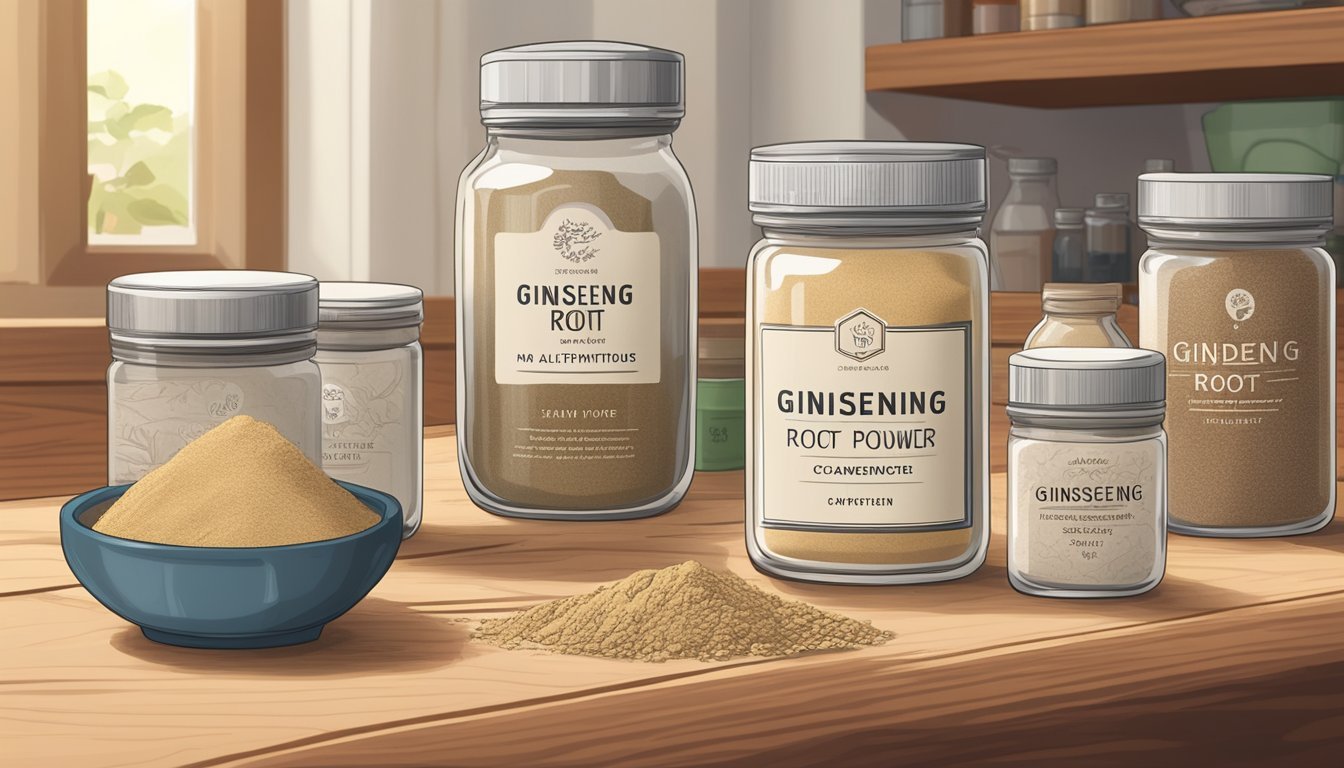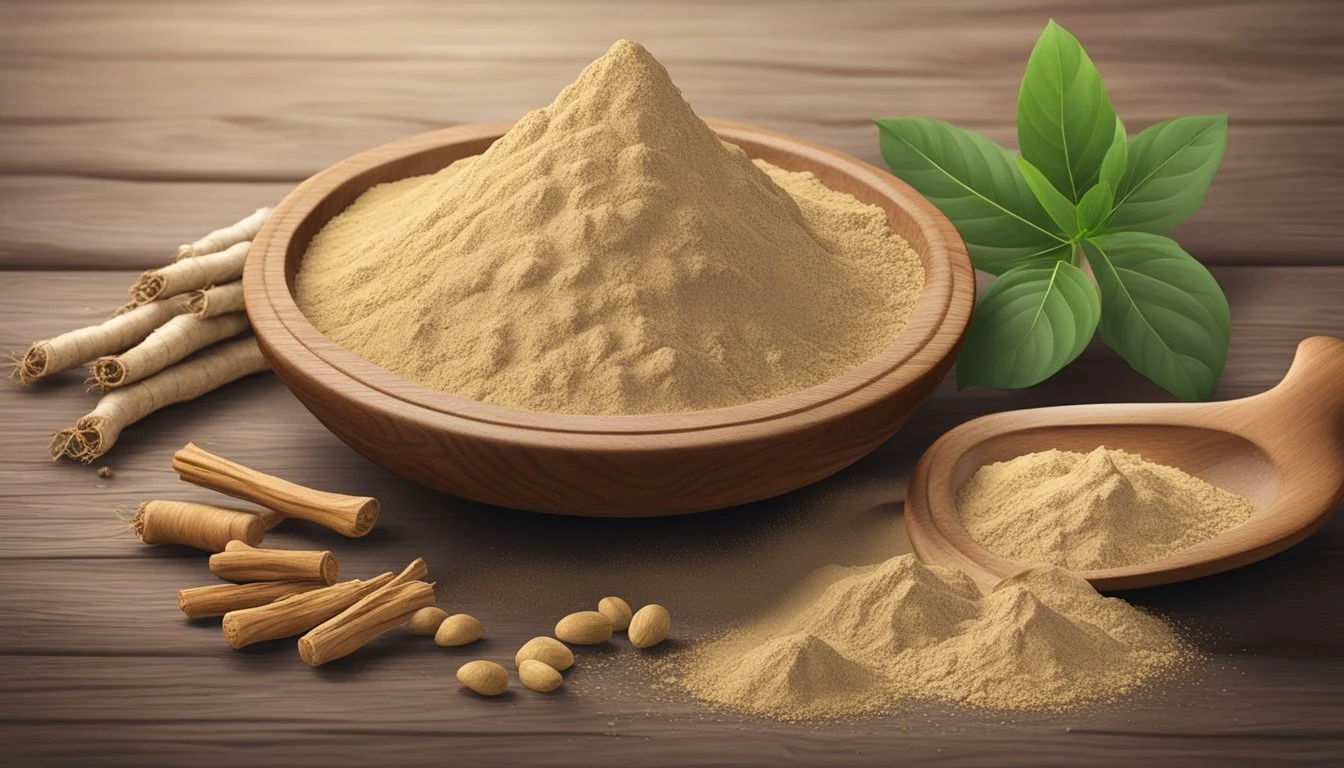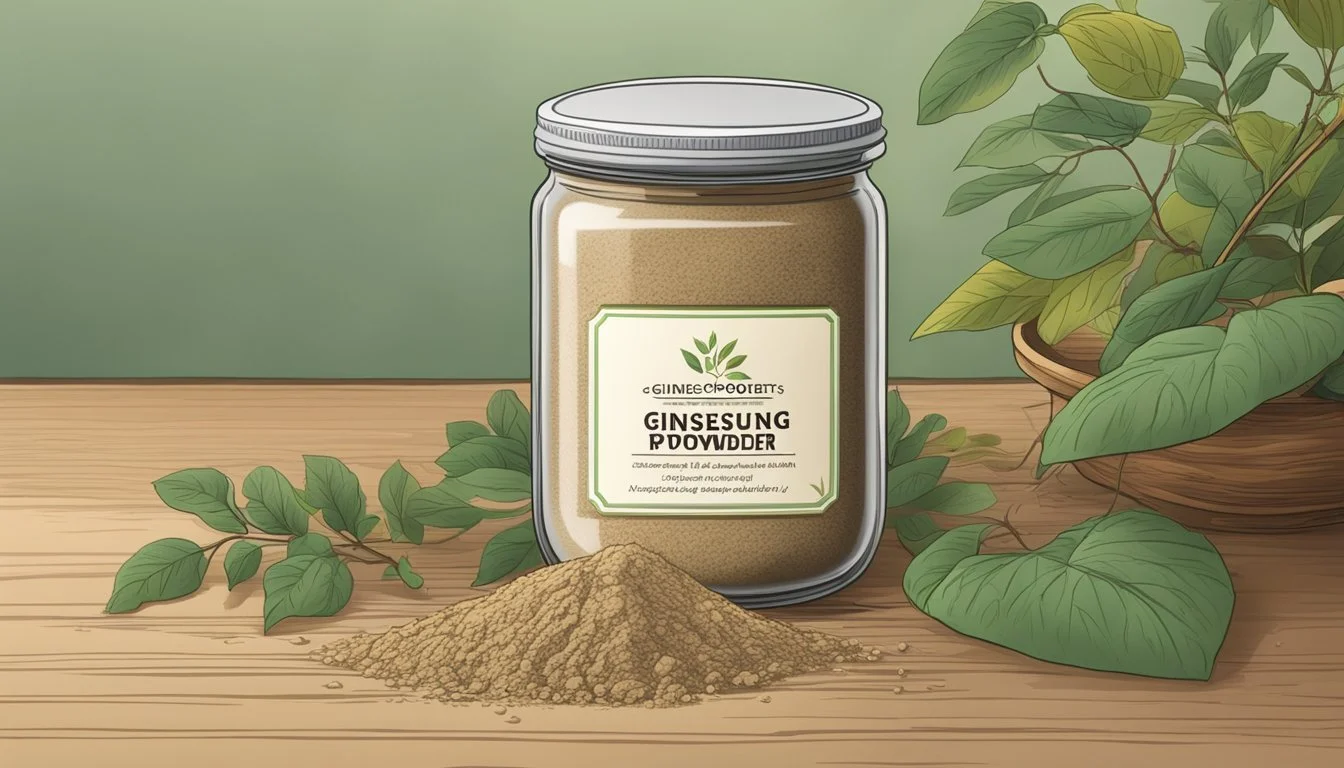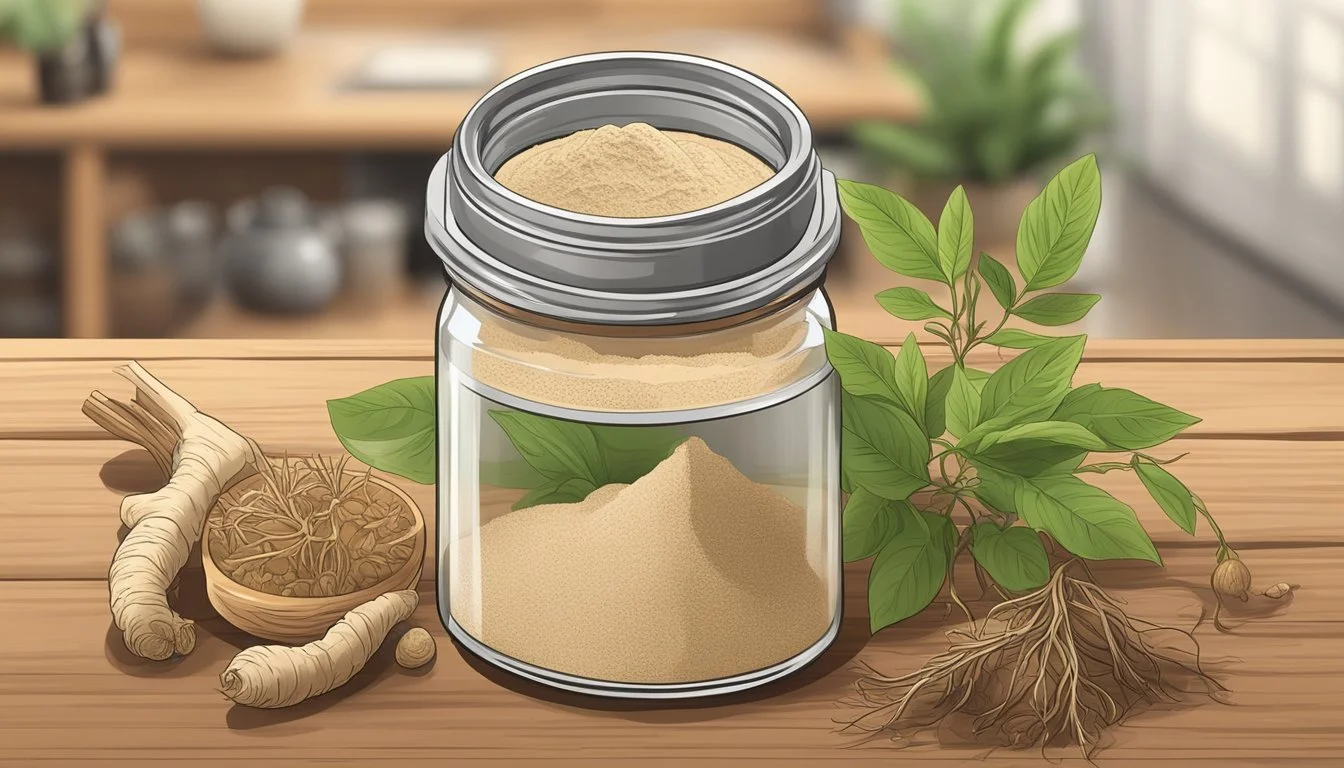Ginseng Root Powder Substitutes
Top Alternatives for Health Benefits
For those who rely on the unique flavor and benefits of ginseng root powder in their cooking and holistic practices, finding a suitable substitute can be essential. One of the best substitutes for ginseng root powder is ginger. Ginger shares a similar flavor profile and can be used in an equal 1:1 ratio in many recipes, providing a slightly spicy and aromatic alternative that enhances both taste and health benefits.
Another excellent alternative to ginseng root powder is galangal. Galangal, like ginger, is common in Asian cuisine and has a distinctive, slightly citrusy flavor that can bring a refreshing touch to your dishes. Its versatility makes it a suitable option for soups, salads, and stir-fries.
For those seeking dried substitutes, cinnamon and nutmeg can be useful. They offer a warm, sweet profile and can be used in smaller quantities to emulate the complexity of ginseng root powder. Each of these substitutes can ensure that your culinary creations remain flavorful and healthful.
Understanding Ginseng Root Powder
Ginseng root powder is derived from the root of the ginseng plant and has been used for centuries, especially in traditional Chinese medicine, for its supposed health benefits.
What Is Ginseng Root Powder?
Ginseng root powder is made by drying and pulverizing the roots of the ginseng plant. The process retains the active components, known as ginsenosides, which are believed to be responsible for ginseng's health-promoting properties.
The most common types include Panax ginseng (Korean ginseng) and American ginseng. Both types are used in supplements, teas, and cooking. The powdered form allows for versatile usage, such as adding to smoothies, soups, and capsules.
Key Characteristics:
Source: Ginseng root
Forms: Powder, capsules, extracts
Active Components: Ginsenosides
Health Benefits of Ginseng
Ginseng root powder is associated with various health benefits.
Energy Levels: It is believed to help improve energy and combat fatigue.
Immune System: It may boost the immune system, enhancing the body’s ability to fight infections.
Stress: Ginseng is used to reduce stress and promote overall mental well-being.
Ginseng's benefits extend to managing conditions like diabetes, owing to its potential to regulate blood sugar levels. The antioxidant properties of ginsenosides contribute to overall health by neutralizing harmful free radicals in the body. Ginseng root powder is also popular in traditional Chinese medicine for its supposed ability to balance and invigorate the body’s systems.
Culinary Uses of Ginseng
Ginseng is a versatile ingredient known for its unique flavor and health benefits. It can be used in various culinary forms such as root, powder, and extract, enhancing dishes from soups to teas.
Incorporating Ginseng in Foods
Ginseng root can be sliced thinly and added to soups, stews, and teas. Cooking ginseng slowly over low heat helps to release its flavors. It is common in Asian cuisine, especially in traditional soups and broths.
Ginseng powder is convenient for adding to dishes. A small amount can be mixed into smoothies, baked goods, or confections. It also blends well with other spices in marinades and dressings.
Ginseng Extract: Liquid ginseng extract can be used as a flavor enhancer for teas, coffees, or even in cocktail recipes. Use it sparingly due to its concentrated nature.
Alternative Forms of Ginseng
Tablets and Capsules: These are typically found in grocery stores and health food shops. They offer an easy way to incorporate ginseng's benefits without altering the flavor of food.
Dried Ginseng Root: This form is readily available and can be rehydrated for use in teas or cooking. It is often used in traditional soups and stews, imparting a deep, earthy flavor.
Ginseng Tea: Prepared from the root or ginseng powder, it is a popular choice for its subtle taste and potential health benefits. Ginseng tea bags are convenient and can be found in most grocery stores.
By using different forms of ginseng, one can easily add its distinctive flavor and potential benefits to a variety of culinary creations.
Substituting Ginseng Root Powder
When substituting ginseng root powder, it is important to understand the flavor profiles and properties of potential alternatives. This ensures that the substitutes match the intended use in cooking and preparation.
Herbal and Plant-Based Substitutes
Ginger is a common replacement with a similar spicy undertone. Use a 1:1 ratio when substituting ginger for ginseng root powder. Ginger adds a warm, slightly sweet flavor.
Siberian Ginseng is another excellent substitute, offering similar health benefits. Although it has a less sweet taste, it complements soups and teas well, also substituting at a 1:1 ratio.
Maca Powder provides an earthy and nutty flavor. Notably, it does not mimic ginseng's bitterness but works well in smoothies and baked goods. For a balanced taste, use a 1:1 ratio.
Matcha can replace ginseng in tea and dessert recipes. Its slightly sweet, grassy flavor offers a unique taste. Adjust quantities as needed to match the desired flavor profile.
Cacao Powder can be used for its rich, slightly bitter flavor. It’s particularly suitable for sweet recipes. Start with half the amount of ginseng root powder and adjust based on taste.
Seed and Grain Alternatives
Ground Chia Seeds can be used as a substitute, particularly for their thickening properties. The subtle nutty flavor makes them suitable for smoothies and baked goods. Use slightly less than called for in the recipe, about a 3:4 ratio.
Almond Flour offers a mild, sweet nutty flavor. It works well in baked recipes as a substitute for ginseng root powder. Use in equal measure, 1:1 ratio, to provide texture and flavor depth.
Coconut Flour is another grain alternative that adds a slightly sweet flavor. It is best used in baked goods and desserts. Due to its absorbent nature, use 1/2 the amount of ginseng root powder called for in the recipe.
Incorporating these alternatives ensures that flavor and nutritional benefits are retained while accommodating different recipes and dietary needs.
Health Considerations and Safety
Considering ginseng root powder substitutes requires careful evaluation of their side effects and interactions with medications. Each substitute may have different impact on health, which is crucial for individuals taking medications or managing specific health conditions.
Potential Side Effects of Substitutes
Substitutes for ginseng root powder can have varying side effects. Many herbal substitutes, such as ashwagandha, have been known to cause stomach upset, diarrhea, and vomiting. Others like rhodiola may lead to dizziness and dry mouth.
Some substitutes may affect blood sugar levels. For instance, ashwagandha can lower blood sugar, which is significant for people with diabetes. High doses of some herbs could also affect mood and contribute to insomnia or increased anxiety. Users should start with low doses and monitor their responses, consulting healthcare professionals for personalized advice.
Interactions with Medications
Herbal substitutes can interact with various medications, posing significant health risks. For example, ashwagandha can interact with diabetes medications and insulin, potentially leading to dangerously low blood sugar levels.
Rhodiola may interfere with antidepressants and other medications affecting the central nervous system. It’s also essential to consider interactions with warfarin or Coumadin, as these can impact blood clotting. Combining herbal supplements with caffeine can exacerbate side effects like nervousness and jitteriness.
Consulting with a healthcare provider before adding any substitute to a regimen is critical to avoid adverse drug interactions, ensuring safety and effectiveness.
Practical Tips and Recipes
When looking for substitutes for ginseng root powder, it's essential to know how to creatively use alternatives and adjust them for the best flavor and effect in various dishes and beverages.
Creative Ways to Use Substitutes
Ginger, cinnamon, and matcha powder are versatile substitutes for ginseng root powder. Ginger, with its slightly spicy and sweet notes, works well in stir-fried dishes, soups, and smoothies. Cinnamon provides a warm, sweet flavor that enhances oatmeal, yogurt, and juices.
Matcha powder, known for its slightly bitter and earthy taste, can be used in tea and beverages. Adding it to recipes like smoothies and rice can impart a unique flavor. For a refreshing drink, consider using spirulina or lemon juice with garlic.
Adjusting Dosage and Taste
When substituting ginseng root powder, the dosage needs careful adjustment to maintain balance in flavor and potency.
Ginger usually requires the same amount as ginseng. For powdered alternatives like cinnamon or matcha, start with half the amount and adjust to taste, as their flavors can be strong.
Spirulina and lemon juice with garlic should be used sparingly, starting with small amounts due to their robust flavors. To manage bitterness, particularly with matcha and ginseng root powder, blend with yogurt or oatmeal. This balances the taste while providing a smooth consistency.
Experimenting with these substitutes can lead to new and exciting culinary experiences, enhancing both the taste and nutritional value of your meals.
Consumer Advice
When considering ginseng root powder substitutes, consumers should focus on smart purchasing choices and awareness of regulatory standards to ensure safety and efficacy.
Purchasing and Storage
Consumers can find ginseng root powder substitutes in various forms such as capsules, tablets, and even in energy drinks. These products are available at grocery stores, health food stores, and online retailers. Quality matters: look for products labeled Non-GMO, Gluten-Free, and Vegan/Vegetarian if dietary restrictions are a concern.
Proper storage of herbal supplements is essential to maintain their efficacy. Store ginseng root powder in a cool, dry place, and ensure it’s tightly sealed to prevent moisture ingress. For capsules and tablets, check the expiration date and keep them in their original containers or airtight jars. Always keep supplements out of reach of children and pets.
Regulatory Considerations
Knowing the regulatory landscape helps in making informed decisions. In the United States, the Food and Drug Administration (FDA) oversees dietary supplements' safety but does not pre-approve them. Consumers should look for products that have been tested by third-party organizations like ConsumerLab to verify their quality and safety.
Understand that supplements can vary greatly in their ginsenoside content, the active compound in ginseng. Labels should indicate this concentration. Check for any possible side effects, especially if mixing with other medications or health conditions. Always consult a healthcare provider before starting any new herbal remedy, particularly for conditions like colds, flu, ADHD, or sexual dysfunction where ginseng is often used.








